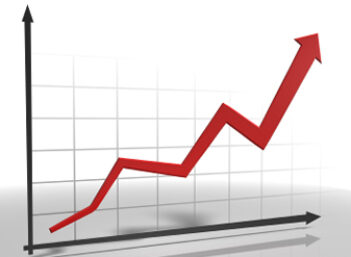Confused about the various classifications applied to stocks by the financial media? Then this article is for you. We'll clear away the fog of financial jargon and replace it with some clarity. So if you don't know the difference between a 'penny stock' and a 'blue chip,' you'll want to keep reading.
Many stocks are categorized by the way they perform during various periods of the business cycle -- the recurring and fluctuating levels of economic activity that an economy experiences over the long-term. Because many companies and their stocks are directly affected by the business cycle, it's only natural that their behavior be used to describe them.
Cyclical Stock
A cyclical stock is stock from a company whose activities closely follow the business cycle of the economy. This type of company is among the first to be impacted by either a recession or a rebound in the economy.
A good example of a cyclical stock would be a steel company. When the economy slows, demand for steel usually slows dramatically. Knowing this, investors will then sell steel stocks in anticipation of lower earnings. The inverse is also true. When the economy appears to be gathering strength, investors will buy steel stocks in anticipation of higher earnings from these companies during an economic upswing.
Non-Cyclical Stock
A non-cyclical stock is from a company whose business activities change little during the stages of the business cycle. These stocks are sometimes referred to as 'defensive' stocks because their earnings tend to be steady no matter what. Examples would be companies in industries such as food production, cleaning products and personal care products.
Similar to cyclical and non-cyclical stocks, there are seasonal and non-seasonal stocks.
Seasonal Stock
A seasonal stock is from a company characterized by the different levels of demand they face for their products throughout the year. One example of a seasonal stock is a toy company. Most demand for toys comes during the December holidays. The rest of the year, demand for toys is rather flat. This type of company will tend to rise and fall based on the holiday season.
Non-Seasonal Stock
A non-seasonal stock is from a company whose business is not affected by the change of seasons. For example, a company that manufactures razor blades is not greatly affected by the time of year.
Stocks can also be classified according to their dividend payout policy. Typically, companies are classified as either growth or income stocks, based on their distributions and earnings potential.
Growth Stock
A growth stock is characterized by both a rapid growth in the company's earnings (and, hopefully, stock price) and by the lack of a dividend payment or, at best, a very small dividend payment. This type of company is either in a rapidly growing industry, such as technology, or it's a company that tends to grow faster than the industry as a whole.
These companies generally reinvest all of their earnings back into the company to maintain rapid growth. The management's logic is that shareholders get the best value when money is used to fuel expansion rather than giving the money to shareholders right then.
Income Stock
An income stock is usually from a mature company that has already reached its maximum growth potential. These companies tend to be in slow-growing, mature industries such as utilities. There is little need to retain earnings 'in-house' as there are few prospects for rapid growth.
These companies often pay out dividends that are higher than the norm. The value of an income stock largely depends on its reliability and track record in paying dividends. Generally, the longer a company has maintained dividend payments, and the higher the dividend payments, the greater its value to investors seeking income.
In addition, there are also many slang terms that are commonly used in the financial industry. Here are a few of the most common:
Blue Chip
A company that is called a 'blue chip' is considered to be the cream-of-the-crop among all companies. These companies tend to be very large companies with a long history of excellent company performance through both good times and bad.
The term comes from poker, where blue chips are the ones with the highest value. Examples of 'blue chip' companies would include Exxon (NYSE: XON), Wal-Mart (NYSE: WMT) and IBM (NYSE: IBM).
Market Capitalization or Market Cap
This is the total dollar market value of a company's outstanding shares. You can calculate it by multiplying a company's outstanding shares by the current market price of a share. Historically, stocks are broken down into classes by their market cap.
- Large-cap stocks are companies with market caps in excess of $10 billion.
- Mid-cap stocks are companies with market caps between $2 billion and $10 billion.
- Small-cap stocks are companies with market caps between $300 million and $2 billion.
- Micro-cap stocks are companies with market caps less than $300 million.
Penny Stock
A penny stock is a stock that trades for less than $1 per share. The term can also denote stocks that are very speculative, which present the investor the possibility of very large gains, but also very large losses. Penny stocks are generally from very small companies that are fairly new to the market and have little history behind them.
For other investing terms you might be unfamiliar with, visit the InvestingAnswers dictionary.



